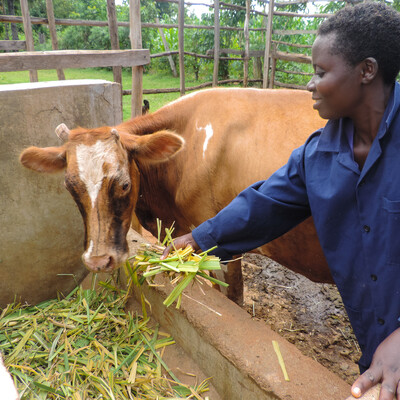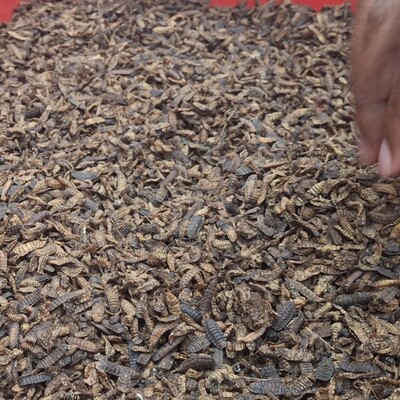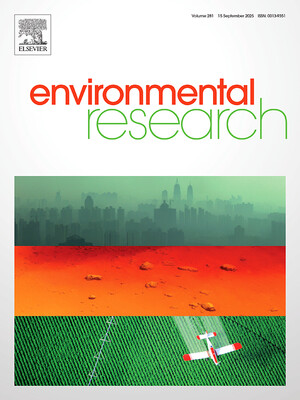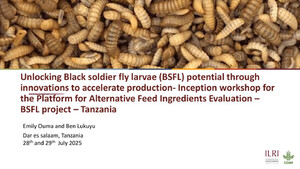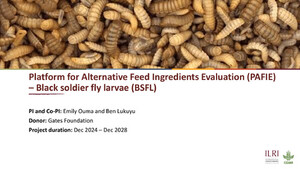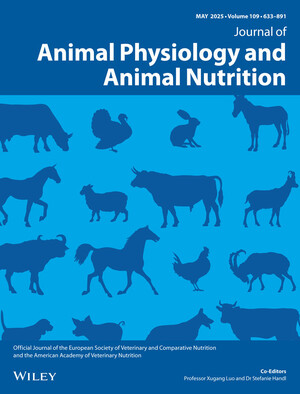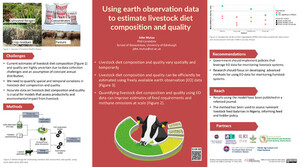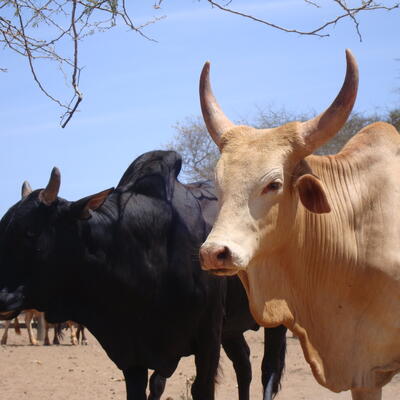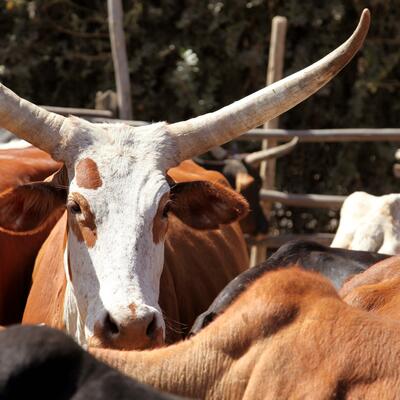
The Feed Assessment Tool (FEAST) – new developments
G-FEAST – a gendered version of FEAST

Feeding cows; Tana River watershed, Kenya; Credit Georgina Smith CIAT
Feeding livestock involves multiple tasks including planting, weeding and harvesting of forages, collecting and storing crop residues and purchasing of concentrate feeds. In every farming community the division of tasks among women and men vary. Also, the benefits from keeping livestock are divided differently among women and men in different communities. Understanding the gender angle to livestock feeding is important when it comes to suggesting new feed options. If we don’t think things through, we may end up with outcomes we hadn’t anticipated.
With this in mind, ILRI in partnership with ICARDA recently upgraded the well-established Feed Assessment Tool (FEAST) to include a gender component. We are calling the new version G-FEAST. G-FEAST maintains all the existing functionality of FEAST but generates extra gender-related insights into the livestock feed system. New features include graphs showing ownership of different livestock species by women and men farmers, gendered division of labour for feeding activities, gendered decision making on sales of livestock products and use of income, the main contributors to women’s income relative to overall household income, and specifications of who is most affected by certain problems.
We have tested the new tool in Uganda and recently applied it in Burkina Faso. It is also currently under testing in Vietnam. We welcome users to think about running a G-FEAST and providing us with feedback on its usefulness. G-FEAST can be accessed here.
Publishing FEAST reports
FEAST is primarily an approach to guide livestock feed interventions. The process includes documenting the local feeding system and capturing the information in a FEAST report. Around 80 of these have been published on the digital repository of the CGIAR: CGSpace. You can view published reports here. These have proven to be a useful record of local livestock feed issues in a range of locations. We would like to expand this information resource and are in the process of improving the readability and presentation of around 40 FEAST reports that have accumulated on our hard drives in recent years. These will soon be published on CGSpace. We have enlisted an editing team to help us with this (Jessica Axberg and Blasius Nche Azuhnwi). If you have unpublished FEAST reports lurking on your computer and would like to submit them to be considered for editing and publishing on CGSpace, please contact Alan Duncan (a.duncan@cgiar.org).
FEAST in the Rwanda Dairy Development Programme (RDDP)
Rwanda Dairy Development Project is implemented by Government of Rwanda under a loan from IFAD. ILRI provides technical assistance to RDDP and one of our early activities has been to work with colleagues from Rwanda Agricultural Board (RAB) and University of Rwanda to apply FEAST in 6 RDDP project sites. This work is designed to support ongoing dairy cattle feed improvement strategies in RDDP. The next step is to take findings from FEAST and use them to develop Feed Intervention Plans. We’d like to replicate this process in other development projects so if you see an opportunity, please get in touch with Alan Duncan (a.duncan@cgiar.org)
Alan Duncan and Ben Lukuyu 28/10/19







